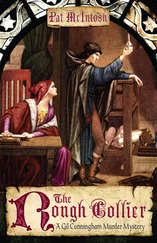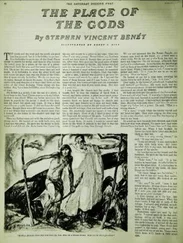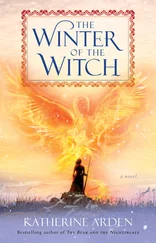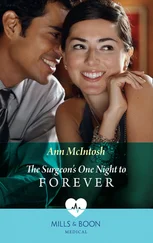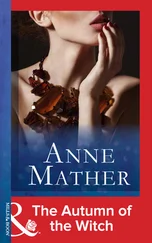Tomas’s air of comfort lessened; he tightened up again. “She’s dead, John.”
Weak though I was, I pushed myself out of the chair and threw myself at him. “You piece of shit. You betrayed us. You may as well have killed her yourself.” His men dragged me away. One of them pulled out a gun. Tomas waved him off and rubbed the spot where my fist had connected with his jaw. “Put that away; it will not be necessary.” His gaze shifted to me. “You aren’t doing yourself any favors, Madison.”
Silence reigned for a few minutes before Tomas spoke again. “They’d already taken her by the time I picked up the engraving. There was nothing I could have done.”
“Ward wanted it. He was willing to make an exchange.”
“You don’t really believe they would have gone through with that, do you?”
“It was my only hope to save her. I was trying to work out a way I could involve the police without Ward finding out. You blew that all to hell and took any chance I had away. How did you know enough to look in the mausoleum anyway?”
“Laurel mentioned Hal’s attachment to his mother. Then Ari passed on what you’d said about the tomb at Trinity. I remembered that place because I’d lived nearby when I went to Columbia. You’d told him you couldn’t get into it. I found the mausoleum with no name and brought a cutting tool with me.”
“And what about me? You abandoned me.”
Tomas did not have a large measure of tolerance at the best of times; it didn’t take much for his patience to break. He yelled, “What did you expect me to do? I had one of Ward’s thugs on my back and barely made it out of the country as it was. Mazare and I took huge risks to bring you here. Consider yourself fortunate. We could have left you to die.”
“Why did you bother?”
Tomas allowed himself a smile. “Perhaps I’m not as bad a man as you like to think.”
“Really? After you killed people in cold blood.”
“Like they were getting ready to do to us, you mean?” “Did they all die?”
“Eris and Shim did. And the two contractors. About Ward, we’re not sure. He was seriously injured, at least. You can appreciate my men didn’t want to linger.”
“How did they find us?”
“The jacket they gave you had tracers sewn into it.”
“They let me escape so they could follow you?”
“Yes.”
“But Mazare checked my jacket and found nothing.”
Tomas smiled again. “Yes, he did check it.”
Seconds elapsed before it dawned on me what he’d done. “Mazare knew the tracers were there. You wanted them to chase us.”
Tomas was actually beaming now. “We trawled for them and they fell for it.”
Anger broke through my exhaustion again. “You and Ward are the same, you know. Human lives mean absolutely nothing to you.”
Tomas dismissed this with a flick of his hand. “Not nothing. But not the most important thing either.”
I let that hang in the air for a minute. “Someone needs to tell the New York police what really happened.”
“When you get back, feel free to tell anyone you like. I certainly won’t. Be careful, though. You were one of the last people seen with both Hal and Laurel. You could be stepping onto a minefield.”
“I’ll take my chances. Where’s Nahum’s engraving? At least let me see that.”
“In due time.”
“What are you talking about—due time? You must have it here. You wouldn’t let it out of your sight.”
Tomas flipped his hand back and forth as if he were swishing away a bothersome fly. “Even this place isn’t safe enough. It must be protected.” My temper surged again. “I don’t believe a word of that.”
My only answer was his contempt. He knew he was in the position of power.
“After what happened to Samuel, everything he went through, you have no right to keep it from me.”
This touched a nerve. “Don’t lecture me about Samuel. I was the one he could count on. You were nothing but a thorn in his side. People felt sorry for him having to put up with you. Laurel told me that back in New York.”
Had she really said that or was he making it up? My own hot shame told me all I needed to know.
His men moved between the two of us. Tomas turned to leave, making it clear our yelling match had come to an end. He’d kept himself under better control than I had. It seemed the city had somehow transformed him. Or perhaps it was simply the luxury of seeing an enemy vanquished. “I have to go out for the rest of the day,” he said casually as he went down the stairs. “My men will care for you while I’m gone.”
He had no need to issue threats about what would happen if I tried to leave.
Not much was left of the afternoon. I struggled up, dragged my chair over to the parapet, and sat there until the sky took on flamboyant pinks and violets, grew murky and then dark. I was glad they left me alone. Despairing thoughts crowded in, reminders of all my failures. The car crash had set off the downward plunge. Even if I managed to stay alive, I didn’t believe I’d ever recover.
Toward the end of the evening my thoughts turned to Samuel. I remembered a train trip we’d taken after one of his long absences to visit friends living near Utica. I’d sat, my face pressed against the glass most of the time, taking in the country landscape. We passed farmers’ fields turning golden in the sun; long-forgotten waterways, their still surfaces covered with verdant water plants; luxuriant vines draped over telephone lines; roads leading to nowhere; stands of forest; brown deer nuzzling grass on stream banks. I’d imagined on that day I was the last human left on the planet, watching the earth reclaim itself.
At one point we crossed a vast plain of marshes, the rushes standing straight as swords, pointing to the sky. Idyllic days, those times I’d spent with him in my youth. How had it gone wrong? What flaw had produced a personality that brought harm to everyone I cared for?

I recuperated for the next six days. My hearing gradually returned to normal. The burn on my arm became less painful. My memory of the attacks and the fight at the cemetery began to fade like a bad dream. Physically, I gained strength. Emotionally, I veered from self-recrimination over Laurel’s death to deep depression, some of the blackest moods I’d ever experienced.
They had no TV or radio. The terrace quickly became my own private refuge; here at least I was blessedly cut off from the world. The only sliver of happiness, weak though it was, came through a developing affection for the city. Out of character for me, I’d get up early in the morning so I could see the boxy forms of its buildings emerge along with the first shafts of sunlight. Night animal though I was, my patterns became almost rural, rising at dawn and retiring at sunset so that when there were brownouts or, frequently, no power at all, I barely noticed. Central Baghdad had many high-rises and I could see few, so I guessed our location to be well into the outskirts.
Reminders of the war intruded, of course. The sky would occasionally buzz with military helicopters, circling like angry wasps overhead. One day a bright arc of fire flared on the horizon, followed by a loud boom that seemed to go on forever. That did not cause me any real concern. Like a moth wrapped securely in its cocoon, I felt safe from the tempest raging outside. The next morning I noticed the rooftop furniture coated with grime. I got a cloth and wiped everything clean again. It seemed that easy, banishing the horror of a bomb with a flick of my hand. Perhaps that was my way of trying to regain some sense of stability.
Once, I thought I heard Laurel’s voice. I rushed over to the parapet. In places the street was so narrow it looked as though you could touch the facades of opposite buildings just by stretching out your hands. I saw three women, each wearing a black chador, walking at a leisurely pace down the street. Their laughter rose up to me, bell-like. One extended a delicate foot; a filigree of silver circled her ankle. Her headscarf slipped back, revealing glossy dark hair. She looked up, sensing me watching from above. Not Laurel, of course. Just my mind playing a vicious trick.
Читать дальше





